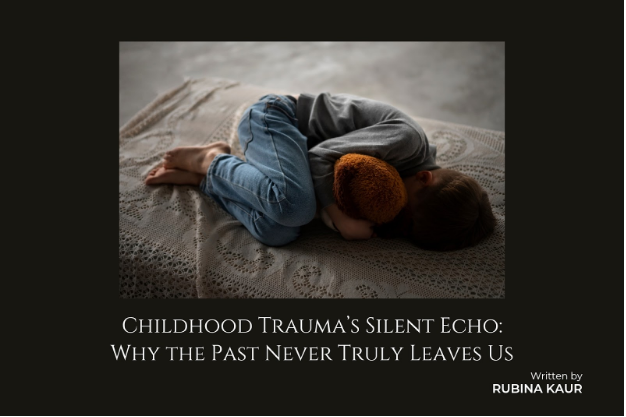








Childhood is the foundation of human development. The early years shape how we see ourselves, how we relate to others, and how we handle life's challenges. But for many children, those years are marked not by safety and love, but by trauma experiences that overwhelm their ability to cope. Childhood trauma can include abuse, neglect, witnessing violence, loss of a caregiver, or growing up in unstable environments.
These experiences don't just leave temporary scars; they often shape the entire course of a child's future. Trauma is closely tied to mental health conditions like anxiety, depression, and post-traumatic stress disorder (PTSD). Its impact stretches into adulthood, influencing relationships, education, career, and even physical health.
In this article, we'll explore the long-term consequences of childhood trauma and how it affects every aspect of life.
Childhood trauma is not limited to extreme cases. It can be:
When children experience trauma, their brains adapt to survive. However, these adaptations can cause long-term emotional and psychological difficulties if not addressed.
The brain develops rapidly during childhood. Trauma disrupts this process:
This explains why many trauma survivors struggle academically and emotionally later in life.
Childhood trauma is one of the strongest predictors of mental illness.
Without intervention, these issues often persist into adulthood, shaping identity and self-esteem.
Healthy relationships rely on trust and security—things trauma often damages.
This cycle can continue into adulthood unless broken through awareness and therapy.
Trauma affects academic and professional life in multiple ways:
However, with resilience and support, many trauma survivors also develop unique strengths such as empathy, creativity, and determination.
Childhood trauma doesn't just affect the mind—it changes the body too. Studies like the Adverse Childhood Experiences (ACE) Study show strong links between early trauma and adult health problems.
Key Insight: This highlights the importance of treating trauma not only as a mental health issue but also as a public health concern.
Everyday life can feel overwhelming for those shaped by childhood trauma:
These patterns can create cycles of stress and exhaustion.
One of the most concerning aspects of childhood trauma is its tendency to pass through generations. Unresolved trauma in parents can impact how they raise their children, leading to emotional neglect, harsh discipline, or repeating unhealthy relationship patterns.
Breaking this cycle requires self-awareness, therapy, and building new ways of parenting.
The good news is that childhood trauma does not define a person's future. With proper support, healing is possible.
Recovery is a lifelong journey, but it allows survivors to reclaim control and build meaningful, fulfilling lives.
Childhood trauma leaves deep marks, but it doesn't have to determine a person's destiny. By acknowledging its impact and providing early interventions, society can help children—and adults who were once children—heal from their past and build healthier futures.
Understanding that anxiety, depression, and trauma are not weaknesses but natural responses to overwhelming experiences is key to breaking cycles of pain and building resilience.
Healing from childhood trauma is not about erasing the past, but about understanding its impact and building new pathways forward. With compassion, support, and professional help, survivors can transform their pain into strength and create the life they deserve.
If you're ready to heal from childhood trauma and build a healthier future, professional trauma therapy can provide the support and tools you need. Contact us to learn more about our trauma-focused therapy and healing services.
If this article resonated with you, share it with others who might benefit from these insights.